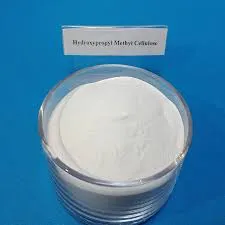
Nov . 22, 2024 01:30 Back to list
hpmc powder
Exploring HPMC Powder Properties, Applications, and Benefits
Hydroxypropyl Methylcellulose (HPMC) powder is a versatile cellulose ether that has gained significant popularity across various industries due to its unique properties and functionalities. This water-soluble polymer is derived from natural cellulose sources and has been modified to enhance its performance in different applications, primarily in construction, pharmaceuticals, food, and personal care industries.
Exploring HPMC Powder Properties, Applications, and Benefits
In the construction industry, HPMC powder plays a crucial role in cement-based products, such as tile adhesives, plaster, and drywall compounds. When added to these materials, HPMC improves workability, providing a smoother finish and allowing for extended open time during application. This means that contractors have more time to adjust and reposition materials, ultimately contributing to better installation results. Furthermore, HPMC's water retention properties prevent premature drying of these products, thereby enhancing their adhesion strength and overall durability.
hpmc powder

In the pharmaceutical sector, HPMC is widely utilized as a drug delivery agent due to its controlled release properties. It is commonly used in tablet formulations to regulate the dissolution of the active ingredient, ensuring that medications are released at a steady rate. This property is particularly beneficial for sustained-release formulations, which can enhance patient compliance by reducing the frequency of dosing. Additionally, HPMC is employed as a film-forming agent in coating processes, providing a protective layer around the tablets that enhances their stability and shelf life.
The food industry also exploits the advantages of HPMC powder, especially as a food additive. It is recognized for its role as a thickener, emulsifier, and stabilizer, contributing to the texture and appearance of various food products. For example, in the production of sauces, dressings, and ice creams, HPMC helps maintain the desired viscosity and prevents the separation of ingredients. Its ability to form gels also makes it useful in vegetarian and vegan food products as an alternative to traditional gelling agents like gelatin, catering to a wider range of dietary preferences.
In the realm of personal care and cosmetics, HPMC serves as a crucial ingredient in formulating hair and skin care products. Its thickening and emulsifying properties allow for the creation of stable creams, lotions, and gels that provide a desirable texture while ensuring that active ingredients are effectively delivered to the skin. HPMC is non-toxic and non-irritating, making it suitable for sensitive skin formulations, contributing to the safety and efficacy of cosmetic products.
In summary, HPMC powder is a multifunctional ingredient that demonstrates its value across various sectors. Its impressive properties, such as water retention, thickening ability, and compatibility with different formulations, make it a go-to choice for many manufacturers. As industries continue to innovate and develop new products, the demand for HPMC is likely to grow, underscoring its importance in modern formulations. Whether in construction, pharmaceuticals, food processing, or cosmetics, HPMC powder shines as a reliable and effective additive that enhances product performance and user satisfaction. With ongoing research and advancements in formulation technology, the future of HPMC looks promising, aligning with the increasing need for sustainable and high-performance materials in diverse applications.
-
Versatile Hpmc Uses in Different Industries
NewsJun.19,2025
-
Redispersible Powder's Role in Enhancing Durability of Construction Products
NewsJun.19,2025
-
Hydroxyethyl Cellulose Applications Driving Green Industrial Processes
NewsJun.19,2025
-
Exploring Different Redispersible Polymer Powder
NewsJun.19,2025
-
Choosing the Right Mortar Bonding Agent
NewsJun.19,2025
-
Applications and Significance of China Hpmc in Modern Industries
NewsJun.19,2025







